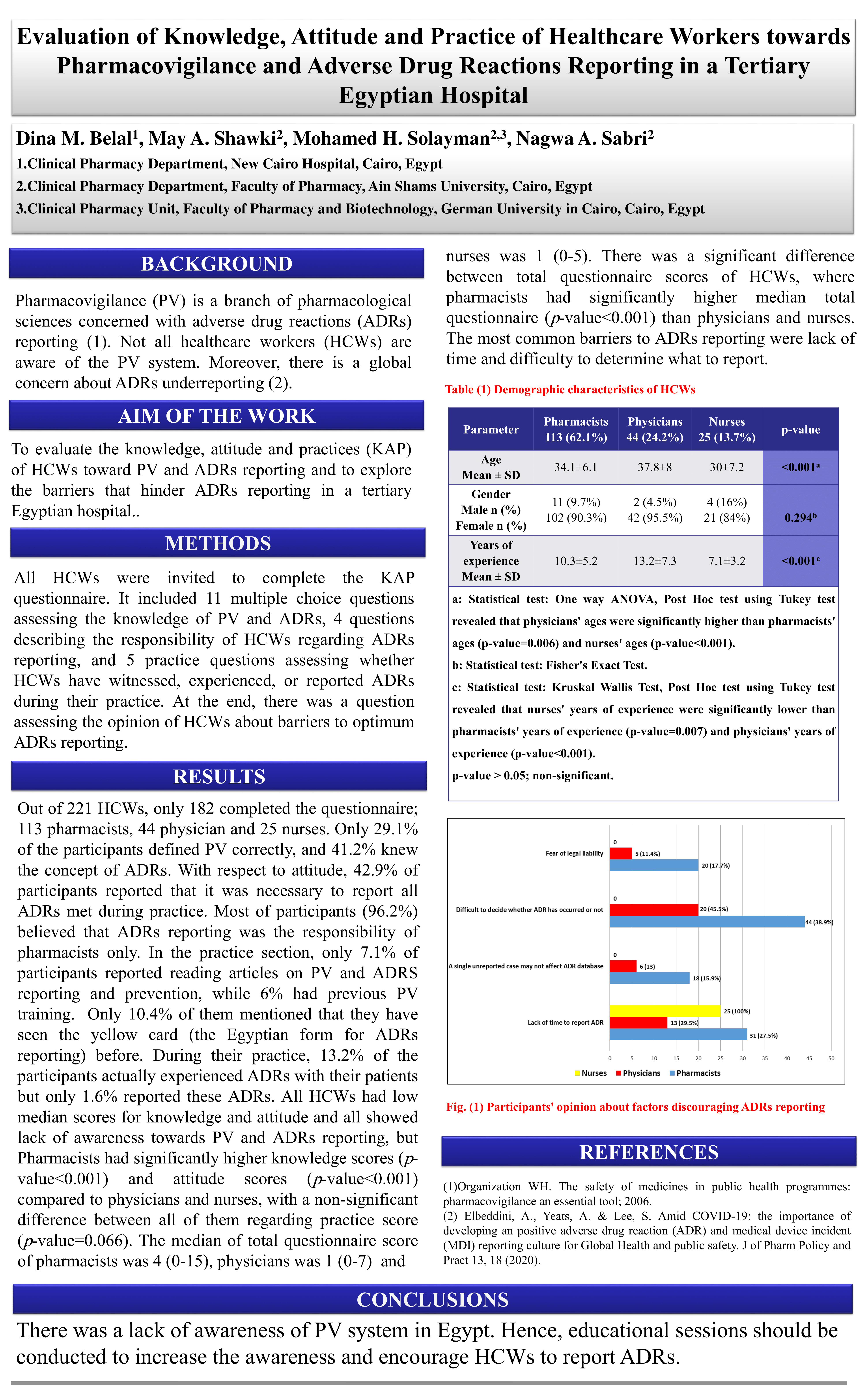Conference 2021 Poster Presentation
Project title
Evaluation of Knowledge, Attitude and Practice of Healthcare Professionals towards Pharmacovigilance and Adverse Drug Reactions Reporting
Authors and Affiliations
Dina Mohamed Belal1, May Ahmed Shawki2, Mohamed Hassan Solayman2,3, Nagwa Ali Sabri2
1. Clinical Pharmacy Department, New Cairo Hospital, Cairo, Egypt
2. Clinical Pharmacy Department, Faculty of Pharmacy, Ain Shams University, Cairo, Egypt
3. Clinical Pharmacy Unit, Faculty of Pharmacy and Biotechnology, German University in Cairo, Cairo, Egypt
Abstract
Background
Pharmacovigilance (PV) is a branch of pharmacological sciences concerned with adverse drug reactions (ADRs) reporting. Not all healthcare professionals (HCPs) are aware of the PV system. Moreover, there is a global concern about ADRs under-reporting. The aim of this work is to evaluate the knowledge, attitude and practices (KAP) of HCPs toward PV and ADRs reporting and to explore the barriers that hinder ADRs reporting in a tertiary Egyptian hospital.
Methods
All HCPs were invited to complete the KAP questionnaire. It included 11 multiple choice questions assessing the knowledge of PV and ADRs, 4 questions describing the responsibility of HCPs regarding ADRs reporting, and 5 practice questions assessing whether HCPs have witnessed, experienced, or reported ADRs during their practice. At the end, there was a question assessing the opinion of HCPs about barriers to optimum ADRs reporting.
Results
Out of 221 HCPs, only 182 completed the questionnaire; 113 pharmacists, 44 physician and 25 nurses. Only 29.1% of the participants were able to define PV correctly, and 41.2% knew the concept of ADRs. With respect to attitude, 42.9% of participants reported that it was necessary to report all ADRs met during practice. Most of participants (96.2%) believed that ADRs reporting was the responsibility of pharmacists only. In the practice section, only 7.1% of participants reported reading articles on PV and ADRS reporting and prevention, while 6% had previous PV training. Only 10.4% of them mentioned that they have seen the yellow card (the Egyptian form for ADRs reporting) before. During their practice, 13.2% of the participants actually experienced ADRs with their patients but only 1.6% reported these ADRs. Despite all HCPs scores were low, pharmacists had significantly higher knowledge (p-value<0.001) and attitude scores (p-value<0.001) compared to physicians and nurses, with a non-significant difference between all of them regarding practice score (p-value=0.066). The most common barriers to ADRs reporting were lack of time and difficulty to determine what to report.
Conclusions
There was a lack of awareness of PV system in Egypt. Hence, educational sessions should be conducted to increase the awareness and encourage HCPs to report ADRs.

